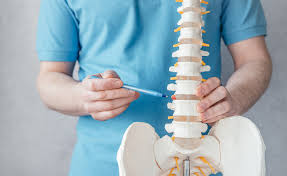Back pain is a common health concern that affects people worldwide. Whether caused by injuries or underlying medical conditions, back problems may significantly impact daily activities and overall well-being. While many instances of back discomfort are temporary and can resolve with self-care measures, some cases may require specialized attention from an orthopedic spine surgeon.
What Conditions Cause Back Issues?
Back pain may stem from a variety of sources. These can range from structural issues in the spine to injuries or age-related degeneration. Understanding the underlying causes is the first step in addressing and managing these problems effectively.
- Degenerative Conditions: The cartilage in the spine may wear down over time, or the discs between the vertebrae may lose their cushioning ability. This results in stiffness, discomfort, and restricted movement.
- Spinal Injuries: Trauma to the spine, such as fractures or herniated discs, can lead to significant back issues.
- Scoliosis and Spinal Deformities: Scoliosis refers to the abnormal curvature of the spine. While mild cases may not cause symptoms, more severe curvatures can result in pain and visible deformities.
- Nerve-Related Issues: Conditions like spinal stenosis arise from the compression or irritation of spinal nerves. This often results in sharp, radiating pain that can spread to the legs or other parts of the body, along with sensations of numbness or tingling.
How Are Back Issues Treated?
Addressing back pain varies depending on the cause, severity, and the impact on a person’s daily life. Many individuals begin with non-surgical interventions such as physical therapy, medications, and lifestyle adjustments. Physical therapy focuses on strengthening the muscles that support the spine, improving posture, and enhancing flexibility. Medications such as anti-inflammatory drugs may provide short-term relief. Lifestyle adjustments, including regular exercise, can help manage symptoms over time.
Surgery is typically reserved for cases where non-invasive measures have failed or when there is a clear structural issue that requires correction. Common surgical procedures performed by an orthopedic spine surgeon include discectomies and laminectomies. Advances in technology have also introduced minimally invasive options that can reduce recovery times and complications.
When Should You Seek Medical Care?
Some instances of back pain can resolve with minimal intervention. Certain signs and symptoms may indicate the need for specialized medical care. Here are situations in which consulting an orthopedic spine surgeon might be advisable:
- Persistent Pain: Back pain lasting more than a few weeks, especially if unresponsive to home remedies or physical therapy, could warrant further evaluation.
- Radiating Symptoms: If pain radiates to other parts of the body, such as the legs, or is accompanied by numbness, weakness, or tingling, it may suggest nerve involvement requiring attention.
- Loss of Function: Difficulty walking, standing, or performing basic activities due to back issues should not be ignored. These symptoms might indicate structural or nerve-related problems that need prompt care.
- Urgent Signs: Sudden loss of bowel or bladder control, unexplained weight loss, or severe back pain following trauma may suggest serious conditions requiring immediate medical intervention.
Consult an Orthopedic Spine Surgeon
Understanding back pain and its potential causes and treatments can provide a path toward relief. While most cases of back discomfort respond well to non-invasive measures, some situations call for expert care from an orthopedic spine surgeon. These specialists are equipped to diagnose and manage a wide range of spinal conditions, offering both surgical and non-surgical solutions tailored to an individual’s needs. Proactive attention to back health can improve quality of life and restore mobility, enabling you to carry on with your daily activities.

